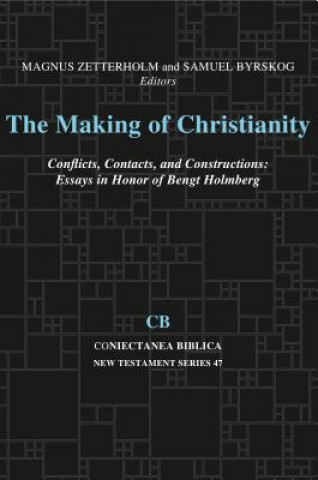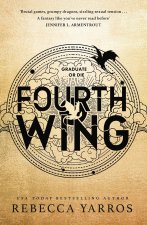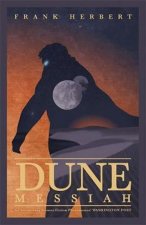
Kód: 20850110
Scourge of God
Autor Selim Adali
Who were the Umman-manda? This is a question that has vexed Assyriologists since the early days of the discipline, particularly because the question has different answers at different times and in different places: Hurrians, Elami ... celý popis
- Jazyk:
 Angličtina
Angličtina - Vazba: Brožovaná
- Počet stran: 240
Nakladatelství: Neo-Assyrian Text Corpus Project, 2011
- Více informací o knize

Mohlo by se vám také líbit
-

Stagecoach
462 Kč -

Ink Silk & Gold
1036 Kč -

Us Against Alzheimer's
603 Kč -

Amante confeso
393 Kč
Dárkový poukaz: Radost zaručena
- Darujte poukaz v libovolné hodnotě a my se postaráme o zbytek.
- Poukaz se vztahuje na celou naši nabídku.
- Elektronický poukaz vytisknete z e-mailu a můžete ihned darovat.
- Platnost poukazu je 12 měsíců od data vystavení.
Více informací o knize Scourge of God
Nákupem získáte 292 bodů
 Anotace knihy
Anotace knihy
Who were the Umman-manda? This is a question that has vexed Assyriologists since the early days of the discipline, particularly because the question has different answers at different times and in different places: Hurrians, Elamites, Medes, Cimmerians, Scythians—all have been cast as the Umman-manda by various peoples at various times. With intractable questions such as this, it is useful on occasion to recapitulate all the evidence that applies to the question, to integrate new evidence that has appeared since the last recapitulation, and to see if a new synthesis of the evidence is possible. In this work, Adalı does precisely that. After collecting all the textual references to the Umman-manda, the author analyzes the writings, surveys the eytmologies proposed for the term Umman-manda over the years, and finally offers a new proposal for the etymology. He then investigates the nonliterary texts that mention the Umman-manda, seeking clues to their origins and ethnic makeup, finding, as others have, that the evidence is inconclusive and sometimes even contradictory. Turning to the literary texts as a source for the Umman-manda, the author finds more fertile ground. Leaving aside the potential historical kernel of the Cuthaean Legend of Naram-Sin because the available evidence does not speak to this issue, Adalı turns his investigation to the Umman-manda as a lit erary topos. By investigating the motifs and terminology used in the Cuthaean Legend and comparing them with similar usage in other literary works, the author is able to establish a leitmotif for the Umman-manda and then identify this leitmotif in the royal inscriptions of Assyrian and Babylonian kings. While the question of who the original Umman-manda were remains a mystery, Adalı’s work offers new insights and a new outlook on the significance of the Umman-manda in the first millennium and particularly on the question of why the Umman-manda meant different things to different people at different times while, nevertheless, not all enemies were referred to as “Umman-Manda.” It provides a new departure point for further investigations of the Umman-manda as well as for the use of literary allusions in both Assyro-Babylonian literature and royal inscriptions.
 Parametry knihy
Parametry knihy
2922 Kč
- Plný název: Scourge of God
- Podnázev: The Umman-manda and Its Significance in the First Millennium BC
- Autor: Selim Adali
- Jazyk:
 Angličtina
Angličtina - Vazba: Brožovaná
- Počet stran: 240
- EAN: 9789521013355
- ISBN: 9789521013355
- ID: 20850110
- Nakladatelství: Neo-Assyrian Text Corpus Project
- Hmotnost: 498 g
- Rozměry: 176 × 250 × 18 mm
- Datum vydání: 30. June 2011
Oblíbené z jiného soudku
-

Dune
262 Kč -

Haunting Adeline
617 Kč -

Berserk Deluxe Volume 2
1093 Kč -

White Nights
78 Kč -

Powerless
276 Kč -

Atomic Habits
339 Kč -

Dune Messiah
178 Kč -

Berserk Deluxe Volume 3
1138 Kč -

One Day
276 Kč -

Berserk Deluxe Volume 1
1112 Kč -

Iron Flame
352 Kč -

Surrounded by Idiots
256 Kč -

Harry Potter and the Prisoner of Azkaban (Minalima Edition)
688 Kč -

Gravity Falls Journal 3
440 Kč -

Heaven Official's Blessing: Tian Guan Ci Fu (Novel) Vol. 1
440 Kč -

The Creative Act
586 Kč -

Dune
213 Kč -

Hunting Adeline
625 Kč -

A Little Life
257 Kč -

Children of Dune
174 Kč -

Heaven Official's Blessing: Tian Guan Ci Fu (Novel) Vol. 2
441 Kč -

Bungo Stray Dogs, Vol. 8 (light novel)
367 Kč -

Percy Jackson and the Olympians 5 Book Paperback Boxed Set
953 Kč -

Solo Leveling, Vol. 1
444 Kč -

The Prisoner's Throne
229 Kč -

Court of Thorns and Roses
254 Kč -

Cry Baby Coloring Book
255 Kč -

Fourth Wing
420 Kč -

Icebreaker
199 Kč -

Berserk Deluxe Volume 6
1086 Kč -

Avatar, the Last Airbender: The Kyoshi Novels (Box Set)
676 Kč -

The 48 Laws of Power
602 Kč -

House of Leaves
405 Kč -

Twisted Lies
214 Kč -

Dune Messiah
277 Kč -

No Longer Human
339 Kč -

48 Laws Of Power
471 Kč -

Twisted Games
214 Kč -

Caraval Paperback Boxed Set
905 Kč -

Solo Leveling, Vol. 2
448 Kč -

Open Circuits
861 Kč -

Berserk Deluxe Volume 5
1115 Kč -

Heaven Official's Blessing: Tian Guan Ci Fu (Novel) Vol. 3
441 Kč -

Berserk Deluxe Volume 4
1165 Kč -

Court of Mist and Fury
238 Kč -

SOLO LEVELING V08
449 Kč -

English File Upper Intermediate Multipack A (4th)
495 Kč -

CHAINSAW MAN V14
249 Kč -

Before the Coffee Gets Cold
209 Kč
Osobní odběr Praha, Brno a 12903 dalších
Copyright ©2008-24 nejlevnejsi-knihy.cz Všechna práva vyhrazenaSoukromíCookies



 Vrácení do měsíce
Vrácení do měsíce 571 999 099 (8-15.30h)
571 999 099 (8-15.30h)